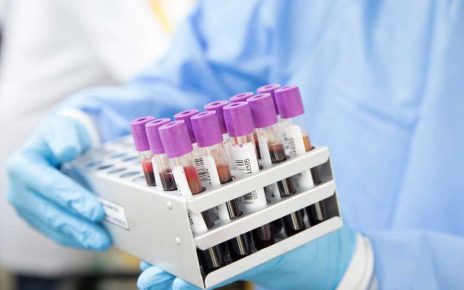Here’s a stat you probably already know: one in eight women will find out they have breast cancer at some point in their lives. This year alone? Nearly 18,000 women will have been diagnosed.
That’s why we tapped up Professor Fran Boyle AM, medical oncologist and former chair of Breast Cancer Trials – the largest, independent oncology research group – to share the things you may not know about the disease.
From what you’re actually looking for during DIY checks (hint: it’s not just a lump) to the latest game-changing research. It’s time to get proactive, mates.
Everybody can be self-aware
“Even if it’s just standing in the mirror or while you’re having a shower: just be aware of what’s normal for you, so that if something changes you can get that checked out. There’s an idea that every breast cancer is like a little pea in your breast, or if it gets bigger it’s like a cherry. And the reality is that some breast cancers aren’t like that at all. Some are like an orange, and some are a thickening or a distortion in the shape of the breast. Just take those little opportunities every week or two to have a look and feel.”

Check more than your breasts
“Your armpits are where the lymph nodes are, and there’s breast tissue that goes up towards the armpit, so if you feel a lump under there, it’s worth getting that checked out. There’s an online resource called Cheeky Check-Up, which has a really good list of the other things to look for, including a change in colour, a change in the nipple, the nipple being drawn in, and a change in the size and shape of the breasts. People often get a bit intimidated, thinking there’s a particular special technique, but in reality the main game is awareness. Also when you’re at your GP for your Pap smear and so forth, ask them to feel as well.”
Think beyond family history
“Only a small number of breast cancers are related to the genes that run in families, so 95 per cent of people who get breast cancer don’t have a genetic predisposition. Though if you do have significant family history, then you need special attention. When you turn 50 you start [getting invited to] mammograms, but younger women can start screening earlier if they have a family history or additional risk factors.”
Go easy on wine time
“There is some data about alcohol [being connected to breast cancer risk] and it has become much more common for women to drink every day. Wine glasses have doubled in size, so many people who think they’re having one glass of wine a day are actually having two. That in a very generic sense is a cancer risk, and it’s also a risk for obesity. So [try] measuring 100ml into one of your favourite wine glasses – you’ll discover how stingy it looks but yep, that’s one glass! Alcohol is a modifiable risk for many health concerns, one of which is breast cancer. There’s also a bit of data linking exercise and fitness to a lower risk of the disease.”

Trials make a difference
“A couple of our recent ones have shown that taking a particular breast cancer treatment medication can significantly reduce the risk for people who don’t have breast cancer but are at a high risk. If you have cancer and you’re offered a clinical trial, that’s a good thing – an opportunity usually, not only to help yourself but to help future generations of women. So try to be open-minded and if you’re offered a trial, think about it. If you aren’t offered one, ask ‘Is there a clinical trial for me?’. That would be my dream. People are cured of breast cancer on a very regular basis because of clinical trial results. Also be reassured that treatment in Australia is pretty much on par with anywhere else in the world.”
Source: Read Full Article



